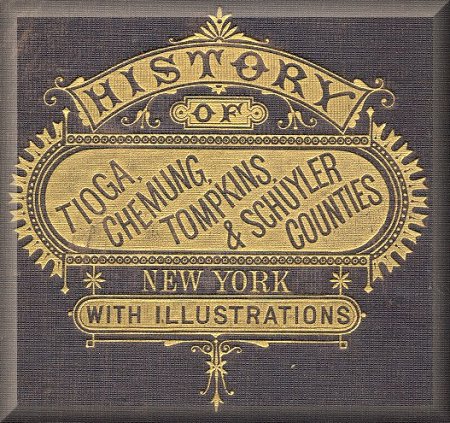|
|
|
|
|
 |
 |
John Arnot was born in Perthshire, Scotland, on the 25th of
September, 1793, making him at the time of his death a little over eighty
years of age. His father emigrated from Scotland, with his family, in the
year 1801, and settled in the vicinity of Albany, this State. In the neighborhood
of that city Mr. Arnot spent his time until the year 1817, engaged in various
occupations, and living the life of one who had been born to that heritage
which most of the best men in the world have seen, -a poor boy’s lot. During
that year he came to this city (then called Newton), and, with the assistance
of Mr. Egret Egrets, a merchant of Albany, who reposed full confidence
in his integrity, commenced his mercantile career, in the year 1819, in
a building just below Fox Street, on Water, which had been occupied by
Lyman Covell.
By care, patience, and economy, Mr. Arnot, after a few years, was enabled to buy out Mr. Egbert’s interest, and own the establishment himself. In the year 1824 he married Harriet, daughter of Stephen Tuttle, then one of the prominent men of the place, and still remembered by many. He was associated with Mr. Tuttle in the mercantile business from 1831 for several years, when Mr. Tuttle retired, and Mr. Arnot continued alone. In the year 1841 he sold out to Partridge & Hill. |
In the year 1848, associated with Constant Cook, John Magee, I. S. Stranahan, and Charles Cook, they relieved the Erie road from its straitened condition, and under-took its construction from Binghamton to Elmira, furnishing the money and taking their pay in the bonds of the company. Their contract was subsequently extended to Corning. Soon after this Mr. Arnot was elected a director in the company, and for many years lent to the interests of the road his sagacity and judicious business ability.
In 1852, having obtained control of the Chemung Canal Bank, he was elected its president, with his son, John Arnot, Jr., as cashier. Being largely interested in the Junction Canal, in 1854 he was elected president of the company constructing it; and soon after, the gas-works coming into his hands, the manner in which this necessary article was furnished to the city fully attested the care and good judgment that marked all the operations with which he was connected.
For the last ten years prior to his decease he was largely engaged in mining, owning entirely, or being interested in, some of the most productive coal mines of the country.
Mr. Arnot was never a partisan in any political sense. Previous to the formation of the Republican party he acted with the Whigs, and since with the Democrats. He was never an aspirant for any office, and never held any except the honorary position of member of the Board of Education from 1859 to 1866, during the formation of our present system of free schools, -a subject in which he took a lively interest, and which he lived to see brought to perfection.
In 1858 he was the Democratic nominee for member of Congress, and failed of election on account of a Republican majority, but only by a small minority.
Mr. Arnot was a just and generous man from principle. Many will remember being carried safely over a crisis in their affairs when no other hand than his would help. His heart was filled with true sympathy for all mankind, a fact which in many ways, unknown to the world, was constantly demonstrated. In a life of severe and never-ending labor, although he acquired large wealth, he never outgrew his natural manhood.
After half a century of active business, having partially recovered from a stroke of paralysis, he made a second trip to the scenes of his childhood in Scotland, and remained over a year, visiting many health-restoring places in Europe. Upon his return, however, a second stroke of paralysis prostrated him, from which he partially recovered, but not to take an active part in business.
Extracts from the minutes of the action taken by the banks and the Common Council of the city upon his death will express more fully the high esteem in which he was held by those who best knew him in the business circle:
ACTION OF THE BANKS.
"At a meeting of the officers of the several banks of this city, held Nov. 18, 1873, at the Second National Bank, on the occasion of the death of John Arnot, St., the following resolutions were adopted:
"Resolved, That owing to the high character of the deceased, his sterling ability as a banker, the purity of his principles, the conscientious regard for truth and justice which characterized all his dealings, this city has lost its ablest financier, and one of its best citizens...."
BY THE COMMON COUNCIL
"Resolved, That in the death of John Arnot, Sr., for half a century an honored and eminent citizen, this community has sustained a severe and irreparable loss. When one so long and so largely identified with the progress and prosperity of our city, so universally respected and deserving of respect, is taken away, it is fitting and proper that the city in its corporate capacity should take notice of the event...."
|